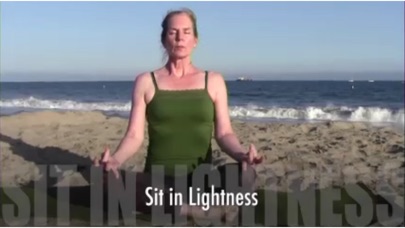
Better Sleep app for iPhone and iPad
Developer: Gurmentor, Inc.
First release : 02 Jan 2018
App size: 82.75 Mb
Mindful Breathing: Better Sleep
A key to good sleep involves several steps:
If possible go to bed at the same time everyday, even on the weekends. Avoid any caffeinated drinks three of four hours before bedtime. Also avoid a heavy meal just before deciding to sleep.
Second, as much as possible, the sleeping area should be prepared to provide as little distraction from sound and light, as possible. If the neighborhood is not quiet and the room is not dark, one could consider using earplugs and an eye mask. If there are LEDs lighting up the electronics such as a cell phone, computer or TV, they could be covered. Room curtains should not let in light. If possible the room should also be at a comfortable temperature.
Finally, lie down and use the breathing exercises provided in this app to help relax the mind and gently go into a sleep. Learn the dynamics of breathing by visiting the Learning Studio. Then use the breath timing feature of the app choose a breath timing and create a playlist that suits you. Choose how many breaths you want to do or the time for which you will follow the Playlist for your breaths. A five minutes is a good time. You can also use the Default playlists that are specially prepared for this app.
It is important to recognize the close connection of the body and the mind. A body that is tense interferes with the ability of the mind to release stress. With each breath try to release your muscles from your toes to your fingertips. Visualize releasing these and let your body sink into the bed. Try to release your physical and mental burdens with each breath.
For sleep, a long pause after the inhale appears to have special benefit, seemingly due to the oxygen slowly flowing into the body to enhance relaxation. The default playlist uses this sequence and the user can create his or her own playlist to experiment with what works.
The app allows one to do the following:
1. Tailor the four parts of an individual breath to create a breathing task and then choose how long one wants to practice by choosing the number of breaths;
2. Create a playlist of a number of different tasks and then use the playlist to go through a sequence of tasks.
The user is encouraged to do research to examine the many scientific studies and recommendations on breathing and visualization for sleep. If you find a breath pattern in your research that you wish to use, you can make a playlist using that pattern in the Customization area of this app.
Many reliable internet sites associated with national and international health organizations or reputable hospitals have excellent descriptions on how breathing techniques can be beneficial. Here are some references:
http://www.prevention.com/health/sleep-energy/breathing-exercise-insomnia
http://www.coreperformance.com/daily/one-small-change/breathe-yourself-to-sleep.html



